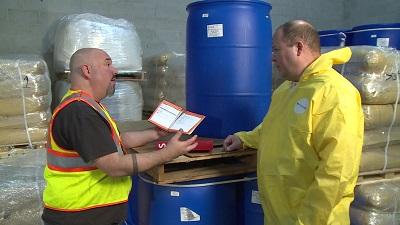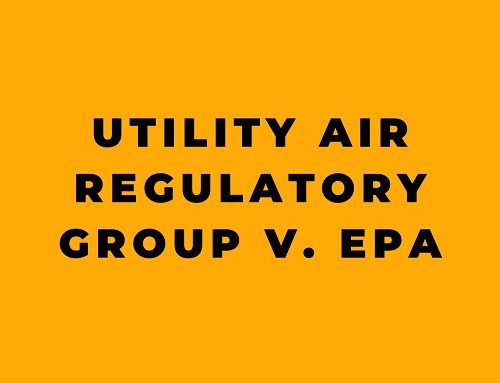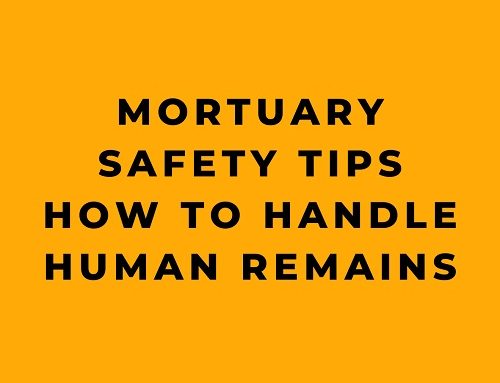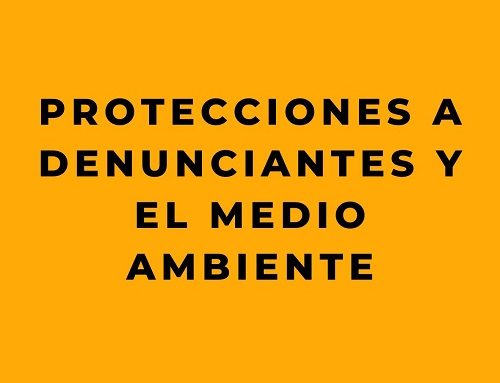Occupational health and safety are a vital part of the workplace. When it comes to occupational safety, one size does not fit all. Different businesses have different needs, so there are so many various certifications for this topic. The essential occupational health and safety certifications are for personnel who work in occupational safety and health. They are designed for people looking to get into this line of work or those workers wishing to upgrade their skills. Certificates are becoming more and more important for job seekers due to the high demand for professions that require specific skillsets. They are mainly used as a screening process by employers and a way to show your knowledge and skillset.
CSP – Certified Safety Professional®
Certified Safety Professionals (CSP) are individuals who perform at least 50% of professional-level safety duties. These duties include making worksite assessments to determine risks, assessing potential hazards and controls, evaluating risks and hazard control measures, investigating incidents, maintaining and evaluating incident and loss records, and preparing emergency response plans. Other duties could include hazard recognition, fire protection, regulatory compliance, health hazard control, ergonomics, hazardous materials management, environmental protection, training, accident and incident investigations, advising management, record keeping, emergency response, managing safety programs, product safety and/or security.
REQUIREMENTS
- Will have a minimum of a bachelor’s degree.*
- Will have four (4) years of safety experience where safety is at least 50%, preventative, professional level with breadth and depth of safety duties.
- Will have a BCSP Qualified Credential:
- Associate Safety Professional (ASP)**
- Graduate Safety Practitioner (GSP)
- Transitional Safety Practitioner (TSP)**
- Certified Industrial Hygienist® (CIH®)
- Chartered Member of the Institution of Occupational Safety and Health (CMIOSH)**
- Canadian Registered Safety Professional (CRSP)**
- CP-12 Professional Certificate in Safety and Occupational Health, U.S. Army Combat Readiness Center (ACRC)**
- Certified Safety Engineer (CSE), as administered by the State Administration of Work Safety (SAWS), People’s Republic of China (PRC)**
- Master in Occupational Safety and Health, International Training Centre of the International Labour Organization (ITC-ILO)**
- NEBOSH National or International Diploma in Occupational Health and Safety**
- Professional Member of the Singapore Institution of Safety Officers (SISO)**
- Diploma/Certificate in Industrial Safety, as issued by the State Government Departments Boards of Technical Education, Government of India**
- Must pass the CSP examination.
- Retain your certification.
- Pay the annual renewal fee
- Meet recertification requirements
—
The exam covers nine main domains, including:
- Advanced Science and Math
- Management Systems, Risk Management
- Advanced Application of Safety Concepts
- Emergency Preparedness/Fire
- Prevention/Security
- Occupational Health and Ergonomics
- Environmental Management Systems
- Training and Education
- Law and Ethics.
The application fee is $160, and the exam fee is $350.
Exam-takers are given 5 and a half hours to complete 200 multiple choice questions on the CSP Exam.
*When applying for the CSP with a degree from a college outside the United States, that degree will be evaluated for U.S. equivalency. Details on the documentation required, requested during the application process, can be found online here.
**Note that all education requirements must be met when pursuing the CSP.
ASP – Associate Safety Professional®
Associate Safety Professionals (ASP) are persons who perform at least 50% of professional-level safety duties including making worksite assessments to determine risks, potential hazards and controls, evaluating risks and hazard control measures, investigating incidents, maintaining and evaluating incident and loss records, and preparing emergency response plans. Other duties could include hazard recognition, fire protection, regulatory compliance, health hazard control, ergonomics, hazardous materials management, environmental protection, training, accident and incident, investigations, advising management, record keeping, emergency response, managing safety programs, product safety and/or security.
REQUIREMENTS
- Will have a minimum of a bachelor’s degree in any field or an associate in safety, health, or the environment.*
- The associate degree must include at least four courses with at least 12 semester hours/18 quarter hours of study in the safety, health, or environmental domains covered in the ASP examination blueprint.
- Will have one (1) year of safety experience where safety is at least 50%, preventative, professional level with breadth and depth of safety duties.
- Must pass the ASP examination.
- Retain your certification.
- Pay the annual renewal fee
- Meet recertification requirements
The exam covers nine main domains, including:
- Advanced Science and Math
- Safety Management Systems
- Ergonomics
- Fire Prevention and Protection
- Emergency Response Management
- Industrial Hygiene and Occupational Health
- Environmental Management
- Training/Education/Communication
- Law and Ethics.
The application fee is $160, and the exam fee is $350.
Individuals are given 5 hours to complete 200 multiple choice questions on the ASP Exam.
*When applying for the ASP with a degree from a college outside the United States, that degree will be evaluated for U.S. equivalency. Details on the documentation required, requested during the application process, can be found online here.
OHST – Occupational Hygiene and Safety Technician™
Occupational Hygiene and Safety Technicians (OHST) perform occupational hygiene and safety activities on a full-time or part-time basis as part of their job duties. Examples of occupational hygiene and safety activities are making worksite assessments to determine risks, potential hazards, and controls, evaluating risks and hazard control measures, investigating incidents, maintaining and evaluating incident and loss records, and preparing emergency response plans.
REQUIREMENTS
- Will work part-time or full-time in occupational hygiene or safety (35% is the minimum) and have duties that require technical skills and knowledge in occupational hygiene or safety.
- Will have three (3) years of experience in occupational hygiene or safety.
- Must pass the OHST examination.
- Retain your certification.
- Pay annual renewal fee
- Meet recertification requirements
The exam covers seven core topics, including:
- Fundamental Math and Science and Business Calculations/Analysis
- Safety, Health, and Environmental Programs & Risk Management
- Hazard Identification and Control
- Health Hazards and Basic Industrial Hygiene
- Emergency Preparedness, Fire Prevention, and Security
- Organizational Communication and Training/Education
- Ethics and Professional Conduct
The application fee is $140, and the exam fee is $300.
Individuals are given 4 hours to complete 200 multiple choice questions on the OHST Exam.
CHST – Construction Health and Safety Technician®
The Construction Health and Safety Technician (CHST) certification is designed for individuals who demonstrate competency and work part-time or full-time in health and safety activities devoted to preventing construction illnesses and injuries. The CHST certification meets national standards for certifications. Candidates for the CHST certification are typically employed as safety and health specialists on construction job sites, serving full-time or part-time positions. Typical individuals are responsible for safety and health on one or more significant construction projects or job sites. They may work for an owner, general contractor, subcontractor, or firm involved in construction or construction safety.
The CHST program recognizes that many employers assign responsibility for construction safety and health functions to those with very important roles in protecting workers. Many construction safety professionals use the CHST as a stepping-stone to greater roles in safety and health and, in some cases, to the Certified Safety Professional (CSP) certification.
REQUIREMENTS
- Will work part-time or full-time in construction safety (35% is the minimum) and have duties that require technical skills and knowledge in health and safety.
- Will have three (3) years of experience in construction health or safety.
- Must pass the CHST examination.
- Retain your certification.
- Pay annual renewal fee
- Meet recertification requirements
The exam covers four main topics, including:
- Hazard Identification and Control (includes Health Hazards)
- Emergency Preparedness and Fire Prevention
- Safety Program Development and Implementation
- Leadership, Communication, and Training
The application fee is $140, and the exam fee is $300.
Test-takers are given 4 hours to complete 200 multiple choice questions on the CHST Exam.
CIT – Certified Instructional Trainer
The Certified Instructional Trainer (CIT) is a certification held by those with experience and expertise in developing, designing, and delivering safety, health, and environmental training. Safety training at this level is virtually in every industry including manufacturing, petroleum production and refining, and construction. A CIT may hold positions at the manager, director, technician, or supervisory level and may have other duties in addition to training.
REQUIREMENTS
- At least 135 hours of teaching, training, or development in any SH&E specialty.
- Pass the CIT examination.
- Retain your certification.
- Pay annual renewal fee
- Meet recertification requirements
The exam covers eight main topics, including:
- Communication and Interpersonal Skills
- Needs Assessment
- Course Design
- Course Development
- Course Implementation
- Trainee Evaluation
- Course Evaluation
- Ethics in Training
The application fee is $140, and the exam fee is $300.
Individuals are given 2 hours to complete 100 multiple choice questions on the CIT Exam.
STSC – Safety Trained Supervisor Construction®
The Safety Trained Supervisor Construction (STSC) is intended for leaders at all levels of an organization because all employees have responsibilities for a safe work environment. This certification is intended for executives, directors, managers, supervisors, superintendents, and employees. These individuals may not have safety as a primary duty, but their knowledge of safety practices ensures safer and healthier worksites, and their competency strengthens the foundation of safety in the organization. The STSC sets standard baseline knowledge across the organization.
STSC candidates:
- Are leaders at any level.
- Have safety responsibilities that are part of other work duties.
- Have safety responsibilities that are adjunct, collateral, or ancillary to their job duties. Their main job duties are in a craft or trade, a technical specialty, supervision, management, or leadership.
- Safety tasks often include monitoring for job hazards, helping ensure regulatory compliance, training employees in safety practices, performing safety documentation tasks, coordinating corrections for identified safety hazards within or among workgroups, and communicating with safety specialists or management.
REQUIREMENTS
- Must have 30 hours of safety, health, and environmental training.
- Must have two (2) years supervisory experience; or four (4) years work experience related to construction (work experience must be a minimum part-time [18 hrs/week] to qualify); or an associate degree or higher in occupational safety, risk management, or construction management; or completion of a two (2) year trade or union training program/apprenticeship.
- Must pass the STSC examination.
- Retain your certification.
- Pay the annual renewal fee
- Meet recertification requirements
The exam will involve five (5) main domains, including:
- Safety Program Implementation
- Hazard Identification and Control
- Health Hazards and Basic Industrial Hygiene
- Emergency Preparedness and Management
- Leadership, Communication, and Training
The application fee is $120, and the exam fee is $185.
Individuals are given 2 hours to complete 100 multiple-choice questions on the STSC exam.
STS – Safety Trained Supervisor®
The Safety Trained Supervisor (STS) is intended for leaders at all levels of an organization because all employees have responsibilities for a safe work environment. This certification is intended for executives, directors, managers, supervisors, superintendents, and employees. These individuals may not have safety as a primary duty, but their knowledge of safety practices ensures safer and healthier worksites, and their competency strengthens the foundation of safety in the organization. The STS sets standard baseline knowledge across the organization.
STS candidates:
- Are leaders at any level.
- Have safety responsibilities that are part of other work duties.
- Have safety responsibilities that are adjunct, collateral, or ancillary to their job duties. Their main job duties are in a craft or trade, a technical specialty, supervision, management, or leadership.
- Safety tasks often include monitoring for job hazards, helping ensure regulatory compliance, training employees in safety practices, performing safety documentation tasks, coordinating corrections for identified safety hazards within or among workgroups, and communicating with safety specialists or management.
REQUIREMENTS
- Must have 30 hours of safety, health, and environmental training.
- Must have two (2) years supervisory experience; or four (4) years work experience in any industry (work experience must be a minimum part-time [18 hrs/week] to qualify); or an associate degree or higher in occupational safety, risk management, or construction management; or completion of a two (2) year trade or union training program/apprenticeship.
- Must pass the STS examination.
- Retain your certification.
- Pay the annual renewal fee
- Meet recertification requirements
The exam will involve five (5) main domains, including:
- Safety Program Implementation
- Hazard Identification and Control
- Health Hazards and Basic Industrial Hygiene
- Emergency Preparedness and Management
- Leadership, Communication, and Training
The application fee is $120, and the exam fee is $185.
Individuals are given 2 hours to complete 100 multiple-choice questions on the STS exam.
SMS- Safety Management Specialist®
Safety Management Specialists (SMS) are individuals with management skills required for a business’s safe operation, applying these safety skills on a full-time or part-time basis as part of their job duties. Some examples of an SMS’s activities include defining and utilizing an organization’s safety management systems; risk management; incident investigation and emergency preparedness; maintaining current knowledge of safety, health, and environmental (SH&E) concepts; and identifying the business case for safety.
REQUIREMENTS
- Will work part-time or full-time in occupational health or safety with a minimum 35% of job tasks related to the management of safety-related programs, processes, procedures, and/or personnel.
- Will have ten (10) years of experience in occupational health or safety.
- Must pass the SMS examination.
- Retain your certification.
- Pay the annual renewal fee
- Meet recertification requirements
The requirements for the SMS exam include:
- Working part-time or full-time in occupational, health, and safety with a minimum of 35% of duties, including managing safety-related programs, policies, people, and/or processes
- Ten (10) years of experience in health and safety
The exam covers five topics, including:
- Management Systems
- Risk Management
- Safety, Health, and Environmental Concepts
- Incident Investigation and Emergency Preparedness
- Business Case of Safety
The application fee is $160, and the exam fee is $350.
Individuals are given 4.5 hours to complete 200 multiple-choice questions on the SMS exam.
IHMM’s Certified Hazardous Materials Manager (CHMM®) credential recognizes your expertise and the significant impact you make on your community and your country. Corporations, universities, and government depend on the CHMM certification to identify professionals like you. By earning the CHMM credential, you join a unique community of over 17,000 of your peers who have demonstrated their commitment to professional excellence and protecting the environment and the public’s health and safety. This certification is for people who know about hazardous materials and hazardous waste management. A person’s tasks include planning for and managing hazardous materials emergencies, identifying, assessing, and mitigating hazardous materials risks, analytical sampling of wastes, and site investigation and remediation.
The requirements for the CHMM exam include:
- A bachelor’s degree
- Four years of experience with hazardous materials management
The CHMM Exam covers twelve topics including:
- Planning for Materials with Hazards
- Shipping and Transporting Hazardous Waste and Hazardous Materials
- Store Materials with Hazards
- Facility Operations Involving Materials with Hazards
- Disposition of Materials with Hazards
- Recordkeeping and Reporting
- Training Personnel
- Response and Recovery
- Remediation
- Management Systems
- Environmental Studies
- Health and Safety
The application fee is $175 and the exam fee is $360.
This exam allows the individual 3 hours to complete 140 multiple-choice questions.
CIH – Certified Industrial Hygienist from American Board of Industrial Hygiene (ABIH)
A Certified Industrial Hygienist (CIH / CAIH) is an individual who has met the minimum requirements for education and experience, and through examination, has demonstrated a minimum level of knowledge and skills in the following subject matter areas:
- Air Sampling & Instrumentation
- Analytical Chemistry
- Basic Science
- Biohazards
- Biostatistics & Epidemiology
- Community Exposure
- Engineering Controls/Ventilation
- Ergonomics
- Health Risk Analysis & Hazard Communication
- IH Program Management
- Noise
- Non-Engineering Controls
- Radiation – Ionizing and Non-ionizing
- Thermal Stressors
- Toxicology
- Work Environments & Industrial Processes
As the industrial hygiene profession itself continued to evolve, it was believed that more people were doing industrial hygiene-like work but would otherwise be unable to qualify for the CIH due to some aspect of their education or experiences. These individuals were still making valuable contributions to preventing occupational and non-occupational illnesses. It was felt that professional certification would improve recognition of their contributions by management, employees, and the public.
From 2001-2006, ABIH offered the Certified Associate Industrial Hygienist (CAIH) program to meet this perceived need. The certification process for the CAIH was similar to that for the CIH except that the qualifications for education, experience, and examination were less stringent, targeted for those who had less science education; were in narrow scope (specialty) roles; or, were spending less time in an industrial hygiene role (due to multi-disciplinary roles). The CAIH examination was different from the CIH, with more emphasis on recognition and evaluation and fewer questions on program management. The examination differences were based on the Role Delineation/Task Analyses done for both the CIH and CAIH job descriptions.
The Board discontinued the CAIH examination in 2006 because there was low demand from potential candidates. The CAIH designation is still recognized and supported by ABIH through its certification maintenance program. Many practicing CAIHs have chosen to maintain their certification through ongoing education (i.e., certification maintenance), recognizing the value of the ABIH mark of certification.
Once the CIH or CAIH credential is obtained, the Diplomate can apply their knowledge in many different situations, some broad, some narrow scope as the person specializes. The domains of practice often differ and change many times during a career. Thus, ABIH places no restrictions or qualifications on the career paths of a CIH or CAIH as long as the person meets the ongoing requirements in the certification maintenance program (described below) and adheres to the professional, enforceable Code of Ethics.
Requirements to sit for the CIH exam include:
- Bachelor’s degree in biology, chemistry, engineering, physics, or an Accreditation Board for Engineering and Technology (ABET) accredited industrial hygiene or safety program.
- Several years of experience
The exam covers three main domains including:
- Exposure Assessment Principles and Practice
- Control Selection, Implementation, and Validation
- Risk Management
The application fee is $150 and the exam fee is $350.
The exam allows an individual five hours to complete 150 multiple-choice questions.










